The Young Lions (1958)
Irwin Shaw's 'Young Lions'; War Story Is Offered at the Paramount Brando, Martin and Clift Are Starred
A FRESHLY refurbished Paramount Theatre was reopened for business last night with a benefit premiere performance of the film made from Irwin Shaw's "The Young Lions." In harmony with the occasion, Mr. Shaw's story has been refurbished, too.
Most noticeable of its changes is in the character of the young Nazi who, along with two American soldiers, is central in Mr. Shaw's novel of World War II. In that large and sweeping saga, this young warrior is introduced as a fairly decent ski instructor who, under the hammering of nazism and war, is molded into a monster, fired with militaristic madness and blood lust.
But in this prettier film version, which is two hours and forty-seven minutes long, this significantly unregenerate Nazi is changed into a very nice young man who never embraces nazism with any apparent zeal. Indeed, he regards the whole business of war with sadness and disgust that become increasingly depressing as time and disasters pile up. Finally, he is thoroughly disillusioned and sick to death with it all, when a bullet, fired by one of the American heroes, brings his sad life to an end.
As played by Marion Brando, with his hair dyed a shiny corn-silk blond and his voice affecting a German accent reminiscent of Weber and Fields, this fellow is sensitive and attractive. He evokes complete sympathy. He has the gentleness of one of those nice young Germans in the memorable "All Quiet on the Western Front." Indeed, there is much about "The Young Lions" that is mindful of that film. It is not so much anti-Nazi as it is vaguely and loosely anti-war.
And this cues the second notation of what has been done with Mr. Shaw's story in this film, which was produced by the late Al Lichtman for Twentieth Century-Fox. It has been chopped by scriptwriter Edward Anhalt into a sort of formless mosaic episodes that fall together int a sort of formless mosaic of the emotional upsets and physical hardships of three soldiers caught up in war. There is really no noticeable moral difference between the one German and the two Americans.
Some of the episodes are quite affecting, such as the one in which the American, who is a Jew, puts up a long, courageous battle against a group of G.I. bigots, abetted by his captain, in training camp. This is matched by the episode in which the German is distastefully compelled to take part in the slaughter of British soldiers caught in a desert surprise attack. In each instance, the individual hero is brutalized by his own countrymen. The only villains are the singular brutes on both sides who make life in the armies miserable.
As it happens, Mr. Brando makes the German much more vital and interesting than Montgomery Clift and Dean Martin make the Americans. Mr. Clift is strangely hollow and lackluster as the sensitive Jew. He acts throughout the picture as if he were in a glassy-eyed daze. And Mr. Martin plays a Broadway showman pulled into the army against his will as if he was lonesome for Jerry Lewis and didn't know exactly what to do.
Unfortunately, neither the script nor the direction of Edward Dmytryk gives him much help. Mr. Martin has by far the least expressive of the three main roles in the film. Even his girl, played by Barbara Rush, gets shanghaied somewhere along about the end of the second hour and is seen no more. There are several loose threads that Mr. Anhalt and Mr. Dmytryk have failed to tie.
As for the women in the picture—Hope Lange, May Britt and Miss Rush—they are competent and attractive in conventional war-picture roles. A shrill, vicious Nazi captain is played that way by Maximilian Schell.
There are plenty of hard, familiar incidents in this black-and-white CinemaScope film, but they are old stuff in the making of war movies and they don't add up to a clear theme. "The Young Lions" is strangely impositive about totalitarian aggression and all-out war.
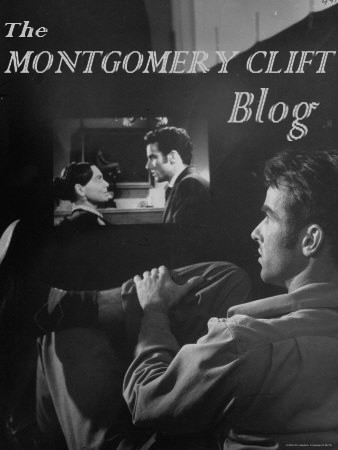



.-+albornoz+(4)+BLOG.jpg)
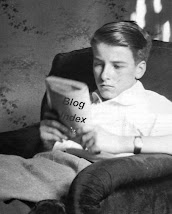
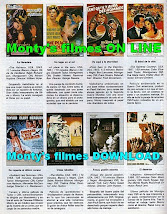


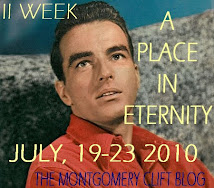











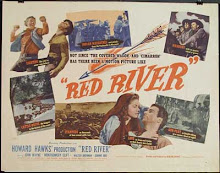
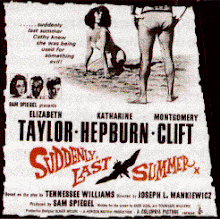



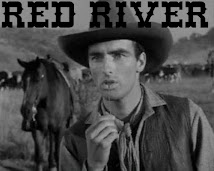
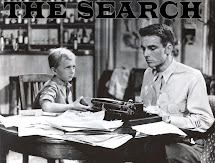

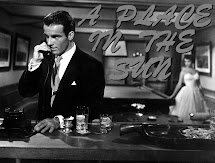2.jpg)
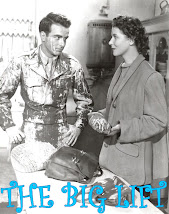.jpg)
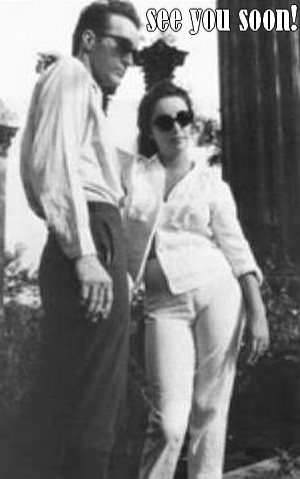

.jpg)


No hay comentarios:
Publicar un comentario